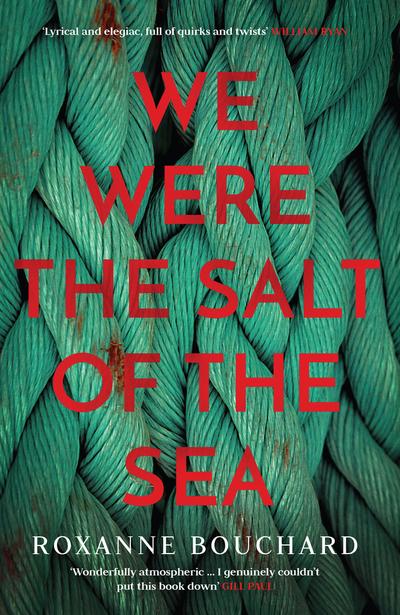Can setting bring an added dimension to crime novels? In this discussion with Roxanne Bouchard, author of We Were the Salt of the Sea (2018) and Ragnar Jónasson, creator of the Icelandic Detective Inspector Hulda Hermannsdóttir in The Darkness (2018), it is looking very much like each of their collections of characters could not be found beyond the very specific setting the authors have provided for them.
Bouchard says that after learning to crew on boats and spending time in fishing villages she was all too familiar with fishermen exaggerating their catch and she wanted to set a crime in a place where a detective has to find the truth, in a village of liars. Her novel is set in the Gaspé Peninsula of Quebec and makes a feature of idiosyncratic Quebecois, even in translation. Setting aside audiobooks and screen readers for a second, many readers consume a text silently with only the voice inside their head but Bouchard has elaborated on that by giving her character Cyril an eccentric breathing pattern. She says she wanted to evoke the sound of drowning and also the breathlessness of being in love. This embellishment of a character is inspiring.
Both authors discuss their main characters’ roles as outsiders, Hulda is a female police officer who has been passed over for promotion more than once and Bouchard’s Catherine and Morales are both lost in their own way. Bouchard says that when they stand in front of the sea they, ‘have found their infinity…I try to work on universal values, they all have dreams, we all want love and are afraid of death so even though they come from different places they share common characteristics with the fishermen.’
Jónasson says he wanted to explore whether a case involving a refugee would be investigated differently to that of a local resident. Responding to how an author goes about describing their country to people who don’t know it, he says he travelled to a part of Iceland he didn’t already know himself and described it as an outsider, including historical facts, and was true to the landscape so that should a reader ever visit the location they would recognise it for themselves.
Bouchard is an immensely charismatic speaker using lyrical language to describe the poetry of the sea. This is her fifth novel, although the first to be translated into English and Jónasson also already has the Dark Iceland series behind him and it would be an absolute pleasure to continue to listen to these experienced writers discuss the craft of character creation but as always time is pressing and there are interesting questions from the audience, including one about the choices Bouchard made about how much or how little French and French-Canadian dialect to incorporate. There is a collective, ‘Aah’ from the audience when she reveals the Quebecois tendency for religious swears because in the English translation it is not explained why a character repeatedly uses the phrase, ‘Christ in a Chalice.’
Although he has written short stories in English, Jónasson feels a translator of novels should be a native speaker of the language they are translating into. He went through an editing process with his translator where they added layers and clarified areas which would have been otherwise obvious to an Icelandic reader.
Finally, Jónasson is asked whether there is something about the Icelandic landscape which makes it such a good setting for dark crimes? He replies that there is a lot of darkness in the landscape. As the population tend to live around the coast, central Iceland is vast, empty highlands with unpredictable weather, if you were to get lost you would most likely die.
This is an exploration of place, people and language as much as it is of crime. Future English translations of both of these authors work are bound to be eagerly anticipated.
